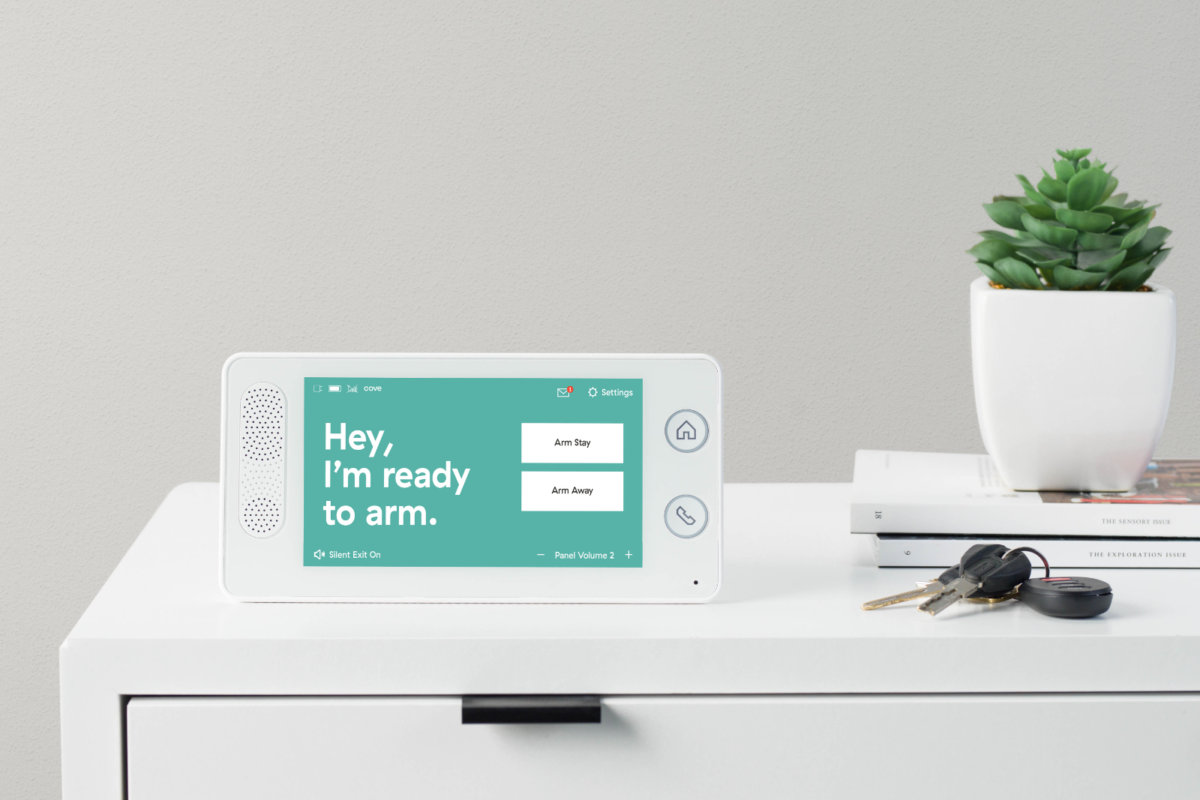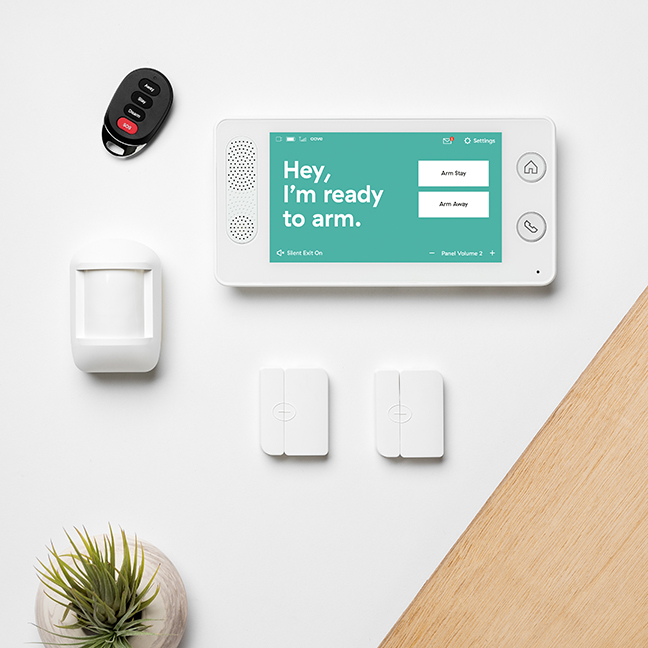Find the Best Surveillance System for Your Home
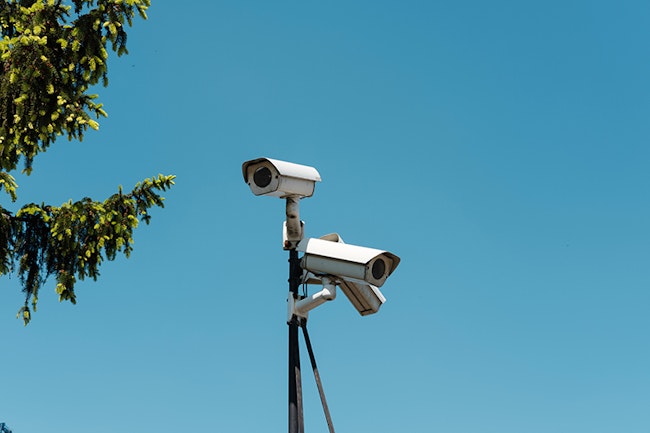
Although there are over 126 million homeowners in the United States, only 17% of homes are protected with a home security surveillance system. A study done by The University of North Carolina at Charlotte found that home security deters burglars in the majority of circumstances. A survey was conducted by an Idaho news station that also found that burglars and home intruders will run at the first sound of an alarm. In short, hundreds of studies and surveys find the same results—burglars avoid homes with alarm systems.
Considering the purpose of an alarm system, it’s not surprising that home security systems deter criminals. The presence of alarms and security cameras increases the chances that the intruder will be caught, either in person or on tape. With new home security advances such as night vision, two-way audio, and motion detection, alarm systems are even more equipped to fight off home intruders and protect your home.
The market is saturated with home alarm systems. Every product advertises something different and claims to be the perfect home security system for your family. With so much information, how can a homeowner sift through the information and find the home security system that is right for them?

Are Home Security Systems Worth It?
First of all, is it really worth it to have a home security system in your home? Depending on the type of security system that you purchase, you could be paying between $15 and $500 every month in home security. So, what benefits do home security systems offer homeowners?
According to the National Council for Home Safety and Security, homes without home security systems are three times more likely to be the victims of burglary than a home with a home security system. Home security systems can protect your home or business from the inside out, providing fast alarms with motion detection that catch the burglar before he or she ever opens the front door. To determine whether or not it’s worth it to have a home security system, let’s look at the facts:
- Every 15 seconds, a home is burglarized.
- Over 2 million homeowners will be the victims of burglary every year.
- Burglaries often happen in broad daylight.
- The average homeowner will lose nearly $3,000 in valuables, including stolen cash.
- The first place a burglar will look for valuables is in the master bedroom.
- Every year, 232,400 guns are stolen during a burglary.
- 27% of burglaries result in violence.
- 13% of burglars are caught.
Most homeowners don’t want to become the victim of a burglary. It not only means that the homeowner loses thousands of dollars in a single hour, but it can also be emotionally damaging. Knowing that a stranger was able to get in and out of your home without getting caught is traumatizing because the homeowner realizes that it can happen again. The good news is that home security systems deter more than 60% of criminals.
To answer the question of whether or not home security systems are worth it, the answer is yes. Home security systems will drastically decrease your odds of becoming a victim.
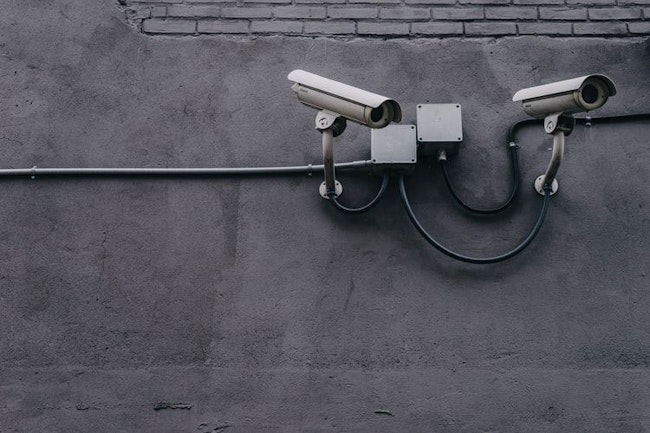
Wired vs. Wireless Home Security Systems
After deciding that a home security system is important, the next question you will be faced with is: “Wired or Wireless?” This introduces you to the two types of home security. On one side of the spectrum, we have wired home security systems. A wired system needs to be installed by a professional installation team and will be connected to the hardwiring on your home. A wireless home security system is completely wireless and can be set up without outside intervention, earning it the beloved nickname of a “DIY” system. Although both systems will effectively protect your home, they couldn’t be more dissimilar.
The wireless home security system is known as the most expensive type of home security system. Both the installation and the wired equipment will cost over $500 to just get the product set up in the home. After the initial setup, the system will still cost about $100 dollars every month. Most professional security experts won’t recommend wired systems to the average homeowners, mainly due to the high costs involved with the installation.
From an aesthetic point of view, the wired systems are less than exciting. Because the wired systems have to be wired into the home, there are limited locations to set up the security cameras and motion detectors. Instead, the system will be forced to mesh with the home’s existing wiring. In some situations, homeowners may need to rewire their homes in order to accommodate the surveillance system. Even after the hassle of installing the wired system, you still may need to hide dangling wires to prevent the system from looking messy.
Some argue that because the wired system doesn’t use the internet, it is more secure. However, although you can access the security camera without internet, the wired system is less secure. The wired system is prone to blackouts and wire cutting, making its strength into a weakness.
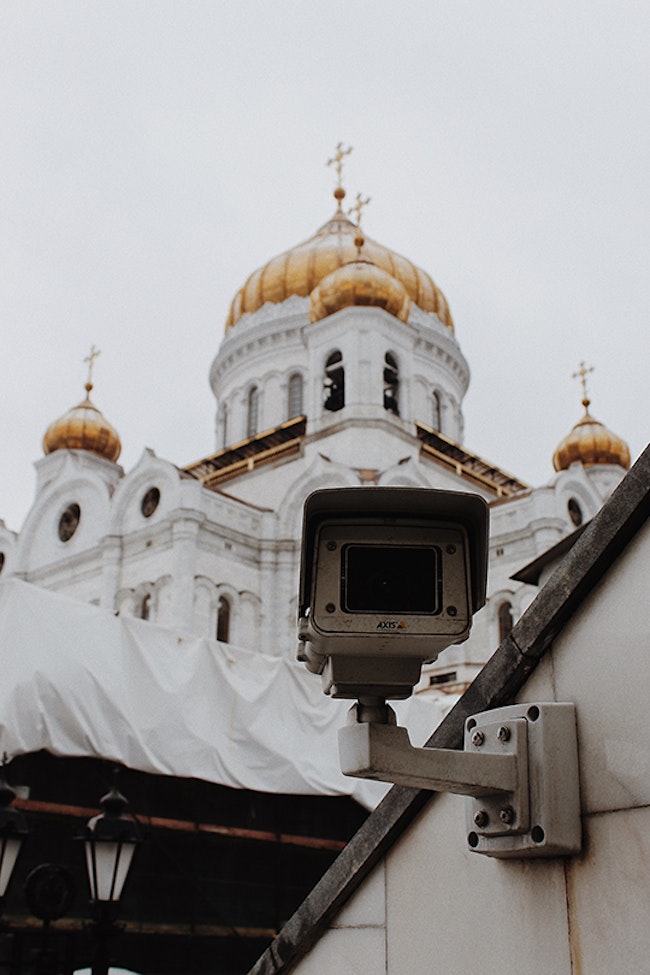
To counter the hassle of a wired home security system, the wireless system was created. Common concerns were turned into strengths. You don’t want to pay for professional installation? That’s alright because, with a wireless system, you can do it yourself. You don’t like the look of messy wires? Perfect. The wireless system doesn’t have any wires. Essentially, the wireless system is everything that’s good about the wired system, without any of its bad traits.
With wireless video surveillance, you have access to all functions and features that you would expect from a home security system. You can set up an indoor wireless camera in your living room and pair it with a camera on your front doorstep. You can customize the system to give you what you want from a home security system. The system offers door alarms, window sensors, motion sensors, surveillance cameras, and more. Some of the most praised qualities of the wireless system are unique to the wireless system.
The most praised attribute of the wireless system is the fact that it is easy to install. Being easy to install makes the system approachable, and homeowners feel more comfortable trusting a wireless system than they do a wired system. Wireless systems allow homeowners to have remote access to their home security system, handing over the ability to monitor their systems from their mobile device. For an outdoor camera, you can even use a wireless solar powered surveillance camera with a movement sensor to avoid the hassle of batteries.
In addition to having a plethora of additional features, wireless systems are significantly less expensive. There’s no setup fee and no upfront costs. Cove Security offers the most inexpensive system on the market, even less expensive than wireless competitors. Per month, Cove customers only pay 15 dollars a month (and that’s for a fully equipped home security system).
In short, many homeowners prefer wireless security camera systems over wired systems. With better features, a less daunting price tag, and a more user-friendly design, wireless security surveillance systems have taken over the market.

What Features Should Home Security Systems Include?
Not all alarm systems are made equal. In fact, some systems include features that every homeowner craves, while others omit those same features. Knowing which features are available to you will help you determine which home security system will be the best fit for your home. Here are all of the features that are available to homeowners:
Night Vision
The first feature that all homeowners should be aware of is night vision. Night vision is vital for homeowners who are looking to protect their homes both during the day and during the night. Burglars are separated into two groups: burglars who target homes during the daytime and those who target homes at night. For the most part, the two groups are fairly evenly split, meaning that homeowners should work hard to protect their homes both at night and during the day.
One of the most important features that a security camera can have is night vision. When a camera has night vision installed, the homeowner is able to see clearly at night, giving them an advantage over the burglar. Night vision illuminates the darkness to help homeowners to feel safer.
Two-Way Audio
Another important feature that is offered by some security systems is two-way audio. Two-way audio will use a home security camera as a two-way speaker, making it possible for the homeowner to speak and listen through the camera. This also means that all camera footage will have both visual footage and audio recording, making it easier for the homeowner to make sense of the scene. Two-way communication works through an app on your phone. The app will be able to connect the home security camera wirelessly to your mobile device, giving you full access to the system. With surveillance cameras with audio recording capability, you can use two-way voice to watch the security footage that the camera is recording live. If you need to speak through the camera, you can, allowing you to communicate with the person on the other side of the camera.
Two-way audio allows you to screen visitors, give instructions to delivery personnel, and alert strangers that they are on camera. Surveillance cameras with audio allow you to stay alert and up-to-date with your own property.
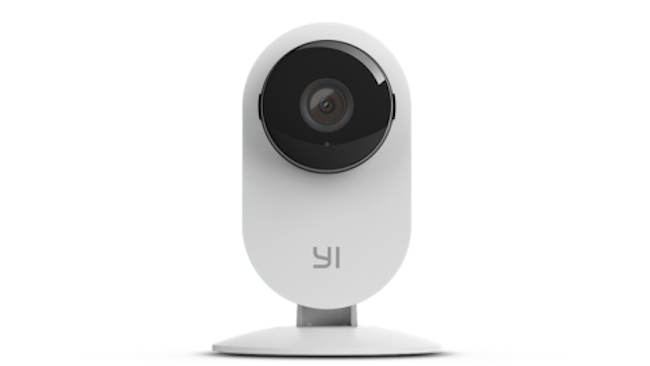
Remote Access
As we mentioned, remote access is an essential key to securing a safe home. With remote access, homeowners gain complete control over their home security systems. Remote access allows you to pair a mobile app with your smart home security system. Once the app is paired, you will be able to access all features of the system through your home.
Remote access allows you to arm and disarm your security system from anywhere. You can watch your surveillance camera while you’re at work, reset false alarms, and check up on your indoor pets. Remote access gives you full control over your home security system.
Surveillance Cameras
No home security system is complete without surveillance cameras. Security cameras can be used as either indoor cameras or outdoor cameras and are vital in protecting your home. Home security cameras are the eyes and ears of your home. Using motion detection, the camera is able to catch motion on video, making it one of the most beneficial and reliable home security features. Pairing a camera with your existing home security system gives you the edge over criminals. Paired with two-way audio and remote access, you will always have access to real-time video footage on your property.
Without a security camera, you’re left without eyes and ears on the property. An indoor camera helps to complete your home security and make you feel safer. A security camera will also allow you to watch indoor and outdoor pets and make sure your kids are getting home from school safely.
Motion Detection
Every home security system should have a device with motion detection. Often, you can get motion sensors that you can set up around the home. When you arm the system, the motion sensors will ensure that there is no unexpected movement in the home. Motion detection can also be paired with cameras. Pairing motion detection with a camera ensures that the camera catches every important scene, without wasting footage.
A camera that records without stopping wastes hundreds of hours of footage. With motion detection, the camera will only record when there is something to record. When the movement in the frame triggers the camera, the camera will record. When there is no movement, the camera will stay in sleep mode. Motion detection ensures that every moment counts.

Wide-Angle Lens
One feature that you should make sure that your camera has is a wide-angle lens. Some security cameras have narrow lenses, often only showing you a 90-degree viewing angle. Although this might not come across as a huge issue, it can change a lot in terms of home security. This also increases the video quality of the camera and influences the recording capacity. For high-definition video, a wide-angle lens is a must-have.
First of all, a narrow lens will record less of a scene. A wide-angle lens is able to record more and give you more of the picture. With a wide-angle field of view, there’s a better chance that you’ll see the face of the intruder. When you’re looking for security cameras, ensure that you get a wide-angle lens.
Facial Recognition
As one of the newest features in the home security world, facial recognition is now offered by some systems. Facial recognition works with the security cameras in the system. The cameras are able to recognize the faces of friends and family members. When the camera recognizes someone, the system will not sound the alarm. However, if the camera does not recognize the person, the alarm will go off as usual. Though this is not a required feature, it may be beneficial for some families.
Wi-Fi Connection
Having an alarm system that can connect to a wi-fi network ensures that you will be able to access the system from a remote location. Often, wireless systems are the only systems that use wi-fi security. Having the capacity to connect to wi-fi also means that the wi-fi cameras will be able to connect to smart devices like the Amazon Alexa. This ensures that your device is backed-up on multiple devices, increasing the security of your home. A security camera without wifi leaves your home security system blind.
Free Cloud Storage
The last feature that you will want to look for in your home security system is free cloud storage. Cloud storage allows you to store video footage from your security cameras. The cloud storage will hold up to seven days worth of footage, allowing you to keep track of important moments. If you need more than seven days, you can always plug in a USB drive or SD card for additional storage. For most homeowners, seven days of cloud storage will be more than enough to cover your needs. Cloud storage allows you to watch your camera footage after the fact.
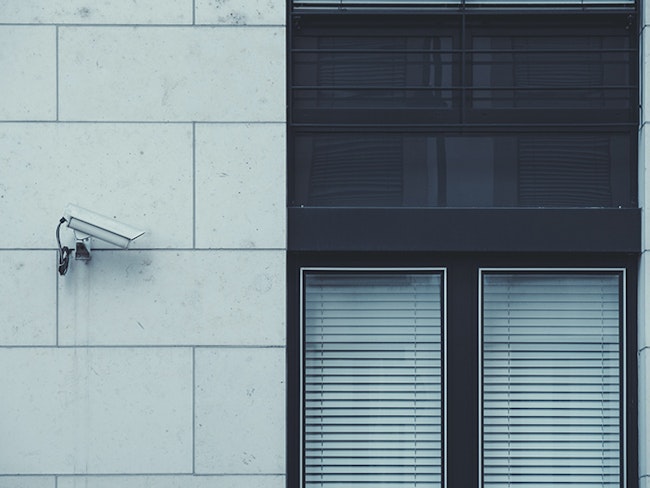
Laws on Surveillance Cameras at Home
In order to make the most informed decision about your home security, you should know the laws about having security cameras in your home. This will help you determine what is (or isn’t) okay and where you can place security cameras for the best protection. Each state will have different home security laws, so it will be important to check your state legislature to ensure that your security cameras are within the law.
For the most part, states agree about the roles of security cameras—security cameras are meant to protect private property and ensure the safety of a household. According to a California law officer speaking about Californian laws on surveillance cameras at home:
“There are no laws, or restrictions, for a private person to have video surveillance cameras around their property for the purposes of security. However, there are laws and constitutional rights regarding privacy.”
Most states do not have laws about security cameras on personal property. As long as the property owner approves of the security cameras, the cameras are allowed. That being said, the security cameras are not allowed to interfere with the privacy of another person. If a neighbor feels like your cameras are infringing on their privacy rights (for example, if the camera is directly recording their home), you could be asked to remove or relocate your cameras. Laws on outdoor surveillance cameras for home vary from state to state. To get the most accurate information about residential security cameras laws, check with your state legislature.
Indoor security cameras cannot be placed in bathrooms or private bedrooms. If a camera is found in a bathroom, the homeowner could risk being prosecuted. According to security camera privacy laws, security cameras are not allowed in the following areas:
- Bathrooms
- Bedrooms
- Locker room
- Changing rooms
- Hotel rooms
- Places that people may get undressed
Placing a camera in any of these areas will jeopardize the privacy of others. Home security is about protecting yourself and your family. In order to do that successfully, ensure that your security cameras are not infringing on the right that others have to privacy.
To summarize laws about home security cameras, an outdoor security camera cannot be placed in any location that makes neighbors feel uncomfortable. If an outdoor security camera is pointed directly at a neighbor’s property, the neighbor could ask you to remove the outdoor security camera. An indoor security camera, likewise, cannot be placed in locations of privacy, such as bathrooms and private bedrooms. Security is meant to protect, not infringe. Because of this, do not place spy cameras or hidden cameras in bathrooms or guestrooms, even if you feel like you have a good reason to do it.
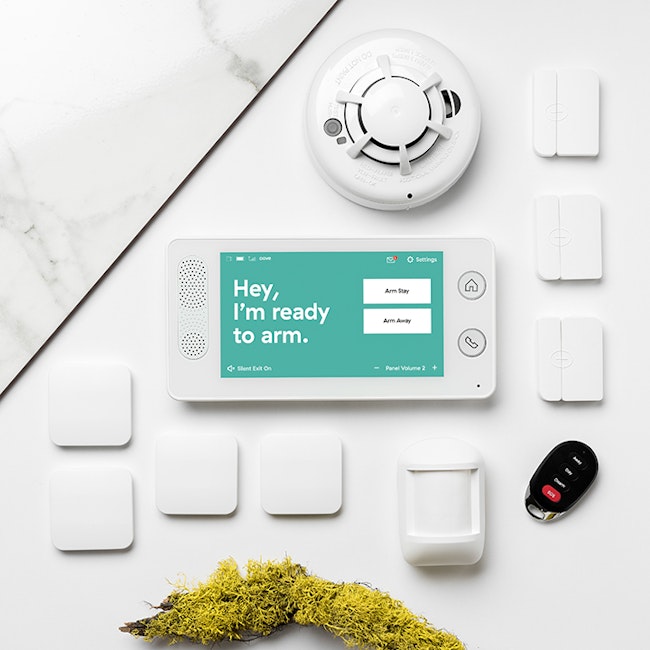
How to Choose the Best Home Surveillance System
Now that you know more about home security, how can you choose the best home surveillance system for your home? First of all, there’s no way to really go wrong with security camera systems as long as they fit in your budget. The presence of a camera system will deter criminals and help to establish a level of security in your home. Home security is used to protect homes from unwanted attention and to help catch the burglar (if a burglar does actually target your home). Using a combination of tools like security cameras, two-factor authentication, and remote access, home security owners feel safer than ever.
Cove Security offers one of the best home security systems on the market. Their camera systems, professional monitoring, and remote access programs are unparalleled. Why is Cove the best security system? The answer is simple: they offer more. Unlike other home security companies that offer small packages for high prices, Cove offers customers a complete home security system for 15 dollars a month. Their home security system will be the cheapest bill you pay every month. Typically home security costs anywhere from 25 dollars to 100 dollars every month—which is why so few people actually look into home security. However, with Cove Security, all people have access to security, regardless of their credit score.
With Cove, here are five features you can expect to have:
- First of all, you can expect to have remote access to your home security system. The system is a DIY home security system, meaning that you have the freedom to set up the system your way. You will also retain your control over the system. With Cove’s remote access app, you will be able to update the system using your phone, arm and disarm the system, and check up on any suspicious activity. Through the camera app's remote access feature, you can use the two-way voice feature, allowing you to communicate with anyone at your home.
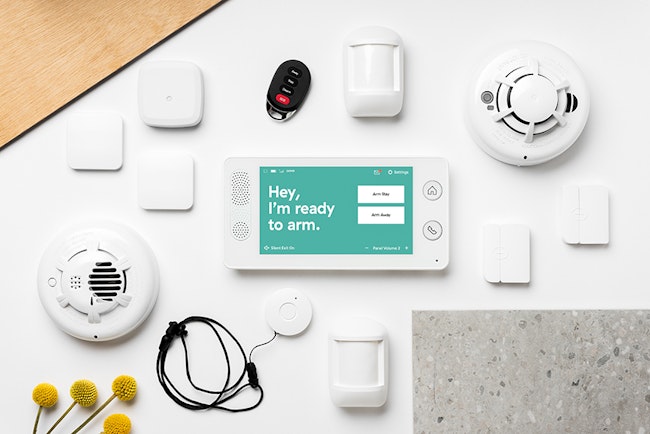
-
Secondly, you will have access to professional monitoring included in the system. Typically, for professional monitoring, homeowners will pay hundreds of dollars every month. However, Cove offers professional monitoring for all customers. If an alarm is triggered at your home, Cove will personally check up on the alarm and call the local authorities if they suspect foul play. Before calling the police, Cove will try to contact the homeowners. If the homeowners are unavailable, Cove will assume that police intervention is necessary.
-
Cove also offers a full home security system, including door alarms, window alarms, an indoor security camera, and more. In order to protect our customers from every angle, we offer every necessary piece of home security equipment. Cove customers gain the flexibility to customize every product they recieve. You can add more equipment and modify the suggested equipment. This helps you to have a home security system that is perfectly tailored to fit your needs.
-
One of the best things that you can expect from Cove is five-star customer service. When working with a home security company, you will need to communicate closely with home security representatives. If the customer service isn’t satisfactory, it can taint the entire experience. Cove, on the other hand, offers the best customer service in the industry. Our loyal employees work hard to both impress customers and to ensure that Cove customers are safe, happy, and content. They will do their best to resolve concerns, offer help and assistance, and ensure that Cove customers feel like a family rather than clients.
-
With Cove, customers have flexibility. Cove allows customers to try out the system for 60 days to make sure that they love it. If you don’t love it, you can return it without any obligations to a contract.
Cove Security really is the best option for home security. Cove offers everything that you will need to protect your home and more. Cove’s mission is to make all families feel safer, happier, and more protected.
Ready to get started?
Take this short quiz to build your customized system today!
Takes less than a minute

